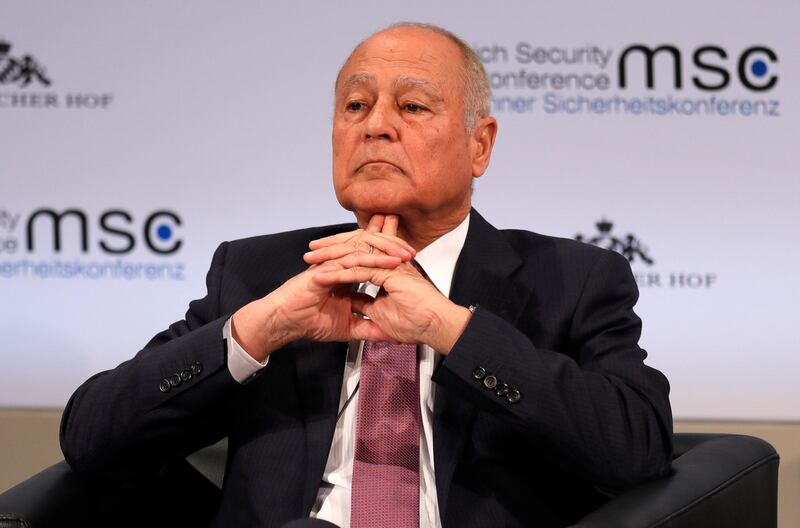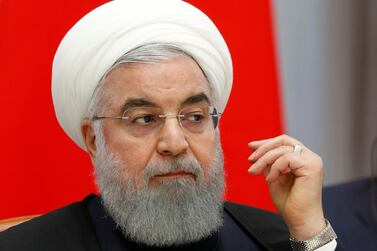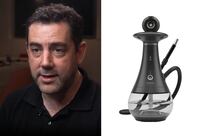The head of the Arab League rejected suggestions that Turkish or European forces could be introduced to northern Syria with the establishment of safe zones after the withdrawal of US ground troops.
Ahmed Aboul Gheit, the secretary-general, said the Syrian Democratic Forces should be supported to establish control over their own territories. He called on Damascus to “moderate its position” and effectively withdraw its stated ambition to recover the territory it still does not control.
Speaking at the Munich Security Conference, Mr Aboul Gheit said the US troop presence in Syria was uncomfortable for the Arab League, which has a principled stance against foreign military deployments in Arab states, but that it was contributing to the stability of the area.
All sides should act “to ensure the situation would not worsen after their withdrawal”. The best means to achieve this is to rely on the SDF. “They are Syrians, they are indigenous forces inside Syria defending themselves,” he said.
The comments came moments after Hulusi Akar, the Turkish defence minister, vowed to intervene in the region to break up the control of the Kurdish YPG.
“We are there for one purpose, to get rid of terrorists, regardless of who they are, YPG [or ISIS],” he said. “We are providing the security of the people, providing the right condition for the return of the refugees.”
Referring to Turkey’s existing operations, he said Ankara had “avoided another disastrous influx of refugees”.
Geir Pedersen, the UN envoy for Syria, acknowledged that the dynamic had changed since his mandate was set out in Security Council Resolution 2254. But the demands of this “new reality” required all sides to support the relaunch of talks in Geneva as soon as possible.
“I need a new international agreement on how to move this forward based on Security Council Resolution 2254,” he said. “There is a new reality. Is it possible to get together on the Syrian file?”
James Jeffrey, the US special representative on the crisis, said Washington supported the UN efforts as the route to achieving the return of half Syria’s population, which has been displaced. “The underlying problem is the nature of this regime,” he said. “The government in Damascus is the primary reason why the international community has been seized with this issue for seven years. We’re calling for a major change in the behaviour of that regime to bring it in line with a dozen resolutions.
“We need to get on top of this through a political process.”
Elias Bou Saab, the Lebanese defence minister, said the proposed safe zone should not depend on the outcome of a power struggle between the US and Turkey.
“Any zone that is going to be put in place, the Americans are looking at it from one angle, the Turks from another,” Mr Bou Saab said. “This is going to create another problem that the world is going to have to deal with. It requires more talks and the Arabs should be involved in that situation.”
Sergey Vershinin, the Russian deputy foreign minister, endorsed a suggestion from Mr Aboul Gheit that the 1998 Adana accords should be used as a mechanism for the SDF and the Syrian government to address Turkey’s security concerns. Under the deal Turkey agreed not to invade Syria to destroy the Kurdish PKK, a group it deems a terrorist organisation, if Syria stopped backing the militants.
An intervention from Raed Al Salah, a founder of the White Helmets, was one of only two Syrian voices at a morning of discussions in Munich.
Mr Al Salah criticised the continuing failure by the outside world to get a grip on the Syrian conflict.
“We don’t need agreements to preserve human security in the Middle East, we need a change in world order,” he said. “The negative role played by international organisations is that they give the dictator the right to control the aid coming into the country.”
One of the unresolved issues of the conflict is the regime’s use of chemical weapons to shore up its position. A comprehensive report published by Germany’s Global Public Policy Institute found 336 incidents of chemical weapons use in Syria since 2012 and that 98 per cent of those had been carried out by the regime of Bashar Al Assad.
“In order to effectively disrupt the Syrian chemical weapons complex and deter their future use in Syria and other conflicts, the United States and the wider international community should directly target the military formations that would be responsible for any future attacks,” the report read. “The Syrian helicopter fleet, which has played a critical role in the delivery of conventional and chemical barrel bombs, should be a primary target.”
Any hope that those ordering the attacks can be brought to justice has receded. “If you are a perpetrator, you can be fairly certain that you will not be held to account,” said Helle Thorning-Schmidt, the head of Save the Children International. “We live in an age of impunity.”






